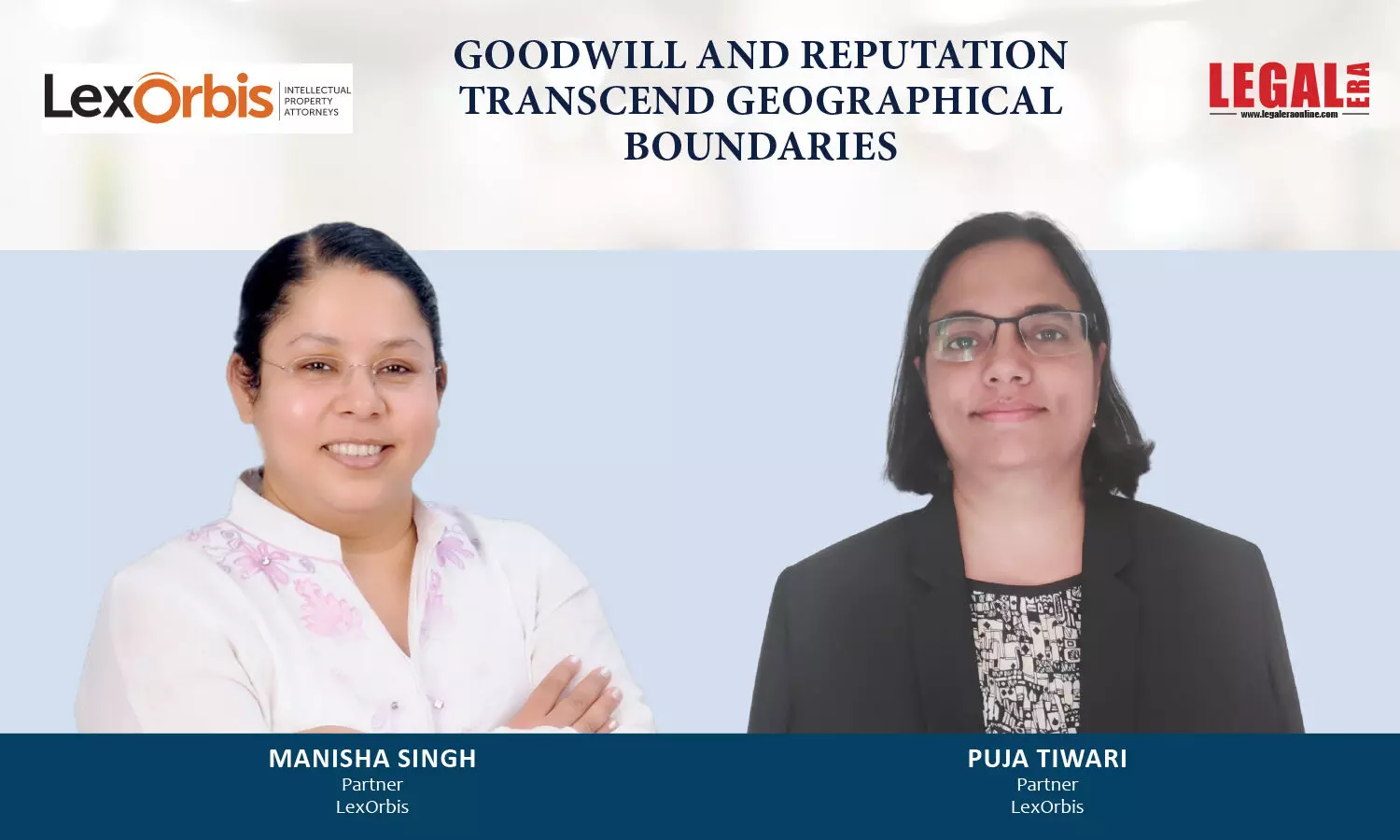- Home
- News
- Articles+
- Aerospace
- Artificial Intelligence
- Agriculture
- Alternate Dispute Resolution
- Arbitration & Mediation
- Banking and Finance
- Bankruptcy
- Book Review
- Bribery & Corruption
- Commercial Litigation
- Competition Law
- Conference Reports
- Consumer Products
- Contract
- Corporate Governance
- Corporate Law
- Covid-19
- Cryptocurrency
- Cybersecurity
- Data Protection
- Defence
- Digital Economy
- E-commerce
- Employment Law
- Energy and Natural Resources
- Entertainment and Sports Law
- Environmental Law
- Environmental, Social, and Governance
- Foreign Direct Investment
- Food and Beverage
- Gaming
- Health Care
- IBC Diaries
- In Focus
- Inclusion & Diversity
- Insurance Law
- Intellectual Property
- International Law
- IP & Tech Era
- Know the Law
- Labour Laws
- Law & Policy and Regulation
- Litigation
- Litigation Funding
- Manufacturing
- Mergers & Acquisitions
- NFTs
- Privacy
- Private Equity
- Project Finance
- Real Estate
- Risk and Compliance
- Student Corner
- Take On Board
- Tax
- Technology Media and Telecom
- Tributes
- Viewpoint
- Zoom In
- Law Firms
- In-House
- Rankings
- E-Magazine
- Legal Era TV
- Events
- Middle East
- Africa
- News
- Articles
- Aerospace
- Artificial Intelligence
- Agriculture
- Alternate Dispute Resolution
- Arbitration & Mediation
- Banking and Finance
- Bankruptcy
- Book Review
- Bribery & Corruption
- Commercial Litigation
- Competition Law
- Conference Reports
- Consumer Products
- Contract
- Corporate Governance
- Corporate Law
- Covid-19
- Cryptocurrency
- Cybersecurity
- Data Protection
- Defence
- Digital Economy
- E-commerce
- Employment Law
- Energy and Natural Resources
- Entertainment and Sports Law
- Environmental Law
- Environmental, Social, and Governance
- Foreign Direct Investment
- Food and Beverage
- Gaming
- Health Care
- IBC Diaries
- In Focus
- Inclusion & Diversity
- Insurance Law
- Intellectual Property
- International Law
- IP & Tech Era
- Know the Law
- Labour Laws
- Law & Policy and Regulation
- Litigation
- Litigation Funding
- Manufacturing
- Mergers & Acquisitions
- NFTs
- Privacy
- Private Equity
- Project Finance
- Real Estate
- Risk and Compliance
- Student Corner
- Take On Board
- Tax
- Technology Media and Telecom
- Tributes
- Viewpoint
- Zoom In
- Law Firms
- In-House
- Rankings
- E-Magazine
- Legal Era TV
- Events
- Middle East
- Africa

Goodwill And Reputation Transcend Geographical Boundaries
Goodwill And Reputation Transcend Geographical Boundaries

Goodwill And Reputation Transcend Geographical Boundaries The Delhi High Court examined all the facts in the writ petition in the case of Amit Sood vs Union of India and Ors. and held that the IPAB had erred in ignoring the findings of the ADJ Panchkula and the goodwill the petitioner and his family had enjoyed since 1960 in terms of various letters of appreciation and continuous...
To Read the Full Story, Subscribe to Legal Era News
Access Exclusive Legal Era Stories, Editorial Insights, and Expert Opinion.
Already a subscriber? Sign in Now
Goodwill And Reputation Transcend Geographical Boundaries
The Delhi High Court examined all the facts in the writ petition in the case of Amit Sood vs Union of India and Ors. and held that the IPAB had erred in ignoring the findings of the ADJ Panchkula and the goodwill the petitioner and his family had enjoyed since 1960 in terms of various letters of appreciation and continuous patronage.
The writ petition in the case of Amit Sood vs Union of India and Ors. was filed against the order of the IPAB in a rectification petition filed by the plaintiff for cancellation of the defendant’s registered mark “ROSHAN”. The petitioner claimed prior use of the mark “ROSHAN” for photo studio and allied services such as photography, with continuous use of more than 75 years. The petitioner’s grandfather adopted the mark “ROSHAN STUDIO” in 1960 in Shimla under a partnership deed. On April 1, 2010, the petitioner formed a new partnership deed with his mother and cousin as equal partners. The Panchkula branch was opened in 1995 by the petitioner’s father, as “ROSHAN POTRAITS”. Now, the petitioner’s cousin manages another branch in Chandigarh and the petitioner’s mother manages the Shimla branch, along with a website, www.roshanstudios.com.
Conversely, the defendant claimed to have used the mark “ROSHAN STUDIOS” since 1990, and in 2005, they filed a suit in Panchkula District Court against the petitioner to prevent them from using an identical name, “ROSHAN STUDIOS,” in respect of their store. During the pendency of this suit, the petitioner became aware of the defendant’s registration of the mark ROSHAN in class 42 and accordingly filed a rectification petition for its cancellation before the IPAB on May 16, 2008.

The learned ADJ, in his order, held that the petitioner was indeed the prior user of the mark “ROSHAN” and decreed the suit in his favour. However, considering the defendant’s registration, the ADJ held that the order would be effective only after removing the mark from the register as per trademark law. The IPAB, while dismissing the rectification petition, held that the reputation of the Studio did not extend beyond Shimla and Chandigarh even though the plaintiff had filed sufficient proof of continuous use and enormous fame and goodwill by way of letters of appreciation from state dignitaries, international agencies, and administrative institutions.
The IPAB further opined that the word “ROSHAN” denotes “light” and can be used by anyone in photography, thus justifying the defendants’ registration. The IPAB did not heed the ADJ’s order and the cross-appeals against it filed by both parties before the Punjab & Haryana High Court, which are still pending.
Aggrieved by this order of IPAB dated August 24, 2012, the petitioner filed the present writ petition. The petitioner submitted that the impugned order of the IPAB rests on an untenable premise and that the IPAB erroneously believed that registration of service marks was not permitted before 2003, and therefore, the use before 2003 was not given significance. Such a stand ignores the long period of continuous use since 1960, along with the reputation and goodwill that the petitioner enjoyed before 2003.
Further, the IPAB relied on Pernod Ricard S.A. vs Rhizome Distilleries Pvt Ltd & Others of the Madras High Court, which the Supreme Court subsequently set aside as it erroneously held that objections under Sections 9 and 11 cannot be considered in a cancellation petition. Further, the argument that “ROSHAN” means light and can be used by anyone in the photography business was not relied upon, even by the defendants and was included independently by IPAB. The petitioner’s grandfather was Roshan Lal Sood; therefore, his photo studio was named “ROSHAN”. In contrast, the defendant’s name was Jit Kathuria; as such, the use of “ROSHAN” was illogical unless it was to ride on the goodwill and reputation of the name in Shimla and Chandigarh, both of which are very close to Panchkula.
The Delhi High Court examined all the facts and held that the IPAB had erred in ignoring the findings of the ADJ Panchkula and the goodwill the petitioner and his family had enjoyed since 1960 in terms of various letters of appreciation and continuous patronage. This goodwill and reputation cannot be limited to Shimla, as reputation transcends physical boundaries. Given the reputation of “ROSHAN STUDIOS”, it is difficult to justify the use of the name “ROSHAN PORTRAITS” by the defendants and consider it to be honest concurrent use more so as “ROSHAN STUDIOS” was also a registered member of the Punjab Photographers’ Association since 1968-69 and has Sales Tax Registration under East Punjab Act, 1948 since 1970.
The reputation and use of “ROSHAN STUDIOS” by the petitioner and his family is not limited to Shimla but is also evident in Punjab. The defendant’s argument that their store has existed since 1992 in Panchkula does not give him prior use rights, given the plaintiff’s continuous use since 1960. As such, the defendant could claim ignorance of the reputation and use of the name “ROSHAN” by the petitioner and his family when he adopted the mark.
The Delhi High Court examined all the facts and held that the IPAB had erred in ignoring the findings of the ADJ Panchkula and the goodwill the petitioner and his family had enjoyed since 1960 in terms of various letters of appreciation and continuous patronage
The Court relied on the decision of the Supreme Court in Laxmikant V. Patel vs Chetan Bhai Shah & Others, where a studio by the identical name MUKTJIVAN was set up a few kilometres away. The Supreme Court had held that such an identical name would create confusion and could result in passing off. The Learned Judge also quoted the case of Dr Reddy’s Laboratories Ltd vs Reddy Pharmaceuticals Ltd, wherein the Court dealt with the common surname, i.e. Reddy, but still protected the rights of the petitioner on the grounds of being exclusively associated with the petitioner and had accumulated considerable goodwill and reputation in the pharmaceutical industry in India and abroad.
Finally, the Court relied on the Triple Identity Test and concluded that the services, geographical area, trade channels, and target audience were similar. As such, the case for infringement and passing off was made out in favour of the petitioner and against the defendant. Thus, the Court set aside the IPAB order and ordered the cancellation of the respondent’s registered mark bearing no. 1324435 in Class 42 for the word “ROSHAN” and ordered the same be removed from the Register of Trademarks within 30 days.
Disclaimer – The views expressed in this article are the personal views of the authors and are purely informative in nature.


